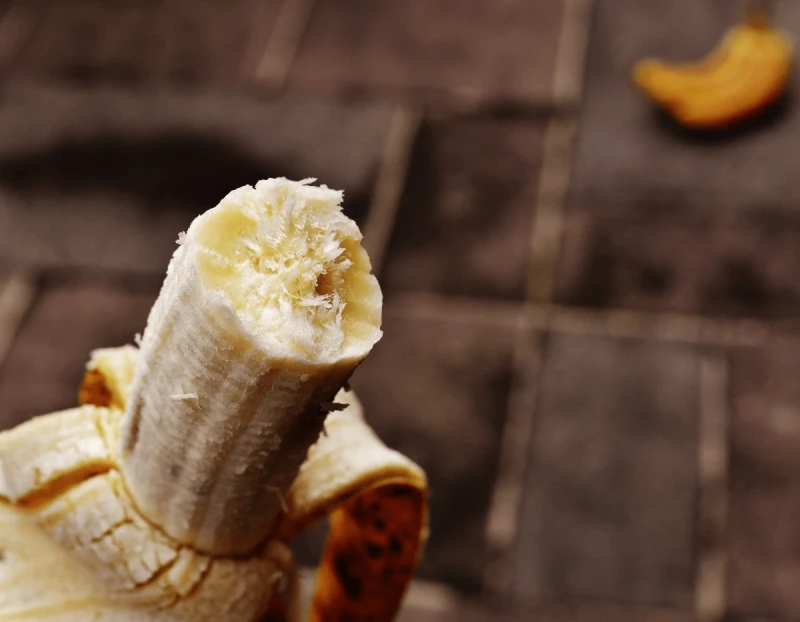Ugly, browning bananas could become a fruit of the past as gene-editing tweak reduces spoilage
Ugly, browning bananas could become a fruit of the past as gene-editing tweak reduces spoilage


Bananas turning brown is a natural process that occurs over time as the fruit overripens and produces too much ethylene. The turning of yellow pigments to brown is called enzymatic browning and is aided by high amounts of ethylene.
While there have been no known health issues arising from eating bananas that have turned brown, they taste too sweet and turn moldy and start to smell unpleasant soon enough.
Tropic, an agricultural-biotechnology company from the United Kingdom (UK), claims to have solved this issue. They have created a variety of bananas using gene editing technology to develop disease-resistant bananas that don’t turn brown and can also solve the Panama disease problem, Interesting Engineering reported.
Tropic’s “non-browning” bananas have also received the go-ahead from the Philippines Department of Agriculture, which has a rigorous gene editing regulatory determination process, said the company in a statement.
The statement further said that Tropic’s non-browning bananas could potentially reduce food waste and CO2 emissions by over 25 percent, given that over 60 percent of the exported bananas become diseased or go to waste before reaching the consumer. The gene-edited bananas could support reducing greenhouse emissions equivalent to removing 2 million passenger vehicles from the road each year.
This is an excerpt. Read the original post here

 | Videos | More... |

Video: Nuclear energy will destroy us? Global warming is an existential threat? Chemicals are massacring bees? Donate to the Green Industrial Complex!
 | Bees & Pollinators | More... |

GLP podcast: Science journalism is a mess. Here’s how to fix it

Mosquito massacre: Can we safely tackle malaria with a CRISPR gene drive?

Are we facing an ‘Insect Apocalypse’ caused by ‘intensive, industrial’ farming and agricultural chemicals? The media say yes; Science says ‘no’
 | Infographics | More... |

Infographic: Global regulatory and health research agencies on whether glyphosate causes cancer
 | GMO FAQs | More... |

Why is there controversy over GMO foods but not GMO drugs?

How are GMOs labeled around the world?

How does genetic engineering differ from conventional breeding?
 | GLP Profiles | More... |

Alex Jones: Right-wing conspiracy theorist stokes fear of GMOs, pesticides to sell ‘health supplements’




 Viewpoint — Fact checking MAHA mythmakers: How wellness influencers and RFK, Jr. undermine American science and health
Viewpoint — Fact checking MAHA mythmakers: How wellness influencers and RFK, Jr. undermine American science and health Viewpoint: Video — Big Solar is gobbling up productive agricultural land and hurting farmers yet providing little energy or sustainabilty gains
Viewpoint: Video — Big Solar is gobbling up productive agricultural land and hurting farmers yet providing little energy or sustainabilty gains Fighting deforestation with CO2: Biotechnology breakthrough creates sustainable palm oil alternative for cosmetics
Fighting deforestation with CO2: Biotechnology breakthrough creates sustainable palm oil alternative for cosmetics Trust issues: What happens when therapists use ChatGPT?
Trust issues: What happens when therapists use ChatGPT? 30-year-old tomato line shows genetic resistance to devastating virus
30-year-old tomato line shows genetic resistance to devastating virus California, Washington, Oregon forge immunization alliance to safeguard vaccine access against federal undermining
California, Washington, Oregon forge immunization alliance to safeguard vaccine access against federal undermining The free-range chicken dilemma: Better for birds, but with substantial costs
The free-range chicken dilemma: Better for birds, but with substantial costs ‘You have to treat the brain first’: Rethinking chronic pain with Sanjay Gupta
‘You have to treat the brain first’: Rethinking chronic pain with Sanjay Gupta
